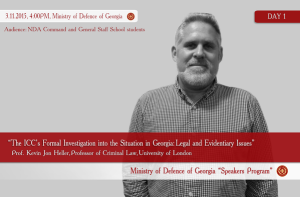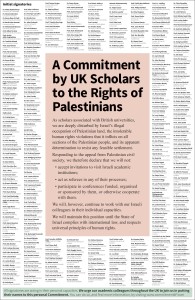What Would Constitute Success in Paris?
[Dan Bodansky is the Foundation Professor of Law and Faculty Co-Director of the Center for Law and Global Affairs at the Sandra Day O’Connor College of Law at Arizona State University. He will be in Paris for the climate change negotiations. This is the first in a series of updates both from the U.S. and from Paris. Professor Bodansky has consulted for the government of Switzerland and the Center for Climate and Energy Solutions (C2ES) in relation to the Paris Summit. However, he is writing in his personal capacity and the views expressed do not necessarily represent those of the Swiss government or C2ES.]
The latest episode of the long-running drama known as the UN climate change negotiations begins this week in Paris. Commentators are touting the Paris conference as “historic”, “pivotal,” the “last chance” for the world to address the climate change problem. So what would constitute success?
For the past couple of decades, political scientists and international lawyers have debated how to measure the effectiveness of international environmental regimes. The gold standard of effectiveness is whether an agreement solves the problem that it seeks to address. That would require the Paris conference to prevent “dangerous anthropogenic climate change” – the explicit objective of the UN Framework Convention on Climate Change. No one is exactly sure how much global warming would be compatible with this objective; to the extent severe weather events like the 2003 Paris heat wave (.pdf) or Hurricane Sandy can be attributed to global warming, then perhaps we are already in the dangerous zone. At the Copenhagen Conference, the international community defined the goal less stringently, as warming of less than 2° C above pre-industrial levels. But some think that 2° itself would be too much, arguing for limits of 1.5° or even 1°.
So far, the world has warmed by about 1°, according to the latest data from the UK Met Office. This might suggest that we’ve still got some headroom, measured against the 2° temperature. But the climate system has tremendous inertia, so the effects of past emissions have been only partially realized. Even if we stopped emitting completely right now, the world would still warm by another half degree or more before leveling off. And, of course, global emissions continue to go up rather than down, and peak emissions, let alone zero emissions, are still more than a decade away.
The bottom line is that there is no prospect that the Paris conference will, in itself, put us on a pathway to meeting the below-2° limit. The emission reduction goals that countries have submitted as part of the Paris process (known in climate change argot as “intended nationally determined contributions” or INDCs) instead put the world on a pathway to global warming of around 3° or 3.5°. So if we take problem-solving effectiveness as our measure of success, then we are bound to be disappointed.
But few public policies fully solve the problem that they address; by that standard, virtually every public policy falls short. In my view, the more reasonable test is whether the Paris conference results in a significant improvement over what would have happened otherwise. And by this measure, the Paris conference is likely to be successful.
How should we assess whether Paris is moving us in the right direction? I would suggest four elements:
• First, is the Paris agreement global in its coverage?
• Second, have countries pledged to make significant reductions in their emissions?
• Third, does the agreement establish mechanisms to promote transparency and accountability, so that we will know whether countries do what they say?
• Fourth, does the agreement provide a process to to ratchet up its level of ambition over time?
On the first element, the Paris process can already be counted a success. More than 150 countries, representing more than 85% of global emissions, have come forward with INDCs – that is pledges of what they’re going to do to reduce emissions. Compared to the Kyoto Protocol, which even in its prime covered only about 25% of global emissions, this a major step forward.
Second, the INDCs that countries have submitted represent a significant improvement over current policy. According to a recent analysis by the UN Climate Change Secretariat, they would reduce emissions by about 3 gigatons (GT) CO2e in 2025 and 4 GT in 2030, as compared to the business-as-usual trajectory. Although this falls well short of putting the world on a below-2° pathway, global warming of 3° C would still be better than 3.5°, and 3.5° better than 4°, and 4° better than 5°. So if Paris moves us down the scale of likely warming, then this represents progress.
Third, countries seem likely to agree to a relatively robust system of reporting and review. While transparency in itself does not ensure that countries will comply, at least it would allow the international community to assess whether countries are living up to their pledges, and to exert peer pressure if they don’t.
Finally, countries also look likely to agree to come back every five years to take stock of what’s been achieved and how that compares to the 2° goal, and to put forward new, more ambitious emission reduction plans.
So I am cautiously optimistic about the Paris conference. Of course, one shouldn’t underestimate the capacity of the UN climate change process to seize defeat from the jaws of victory. And the victory would, in any event, be only partial. But if Paris establishes a durable framework that is global in scope, provides for transparency, and pushes to strengthen ambition over time, then, for me, that would be a significant achievement and would constitute success.


 Print This Page
Print This Page






